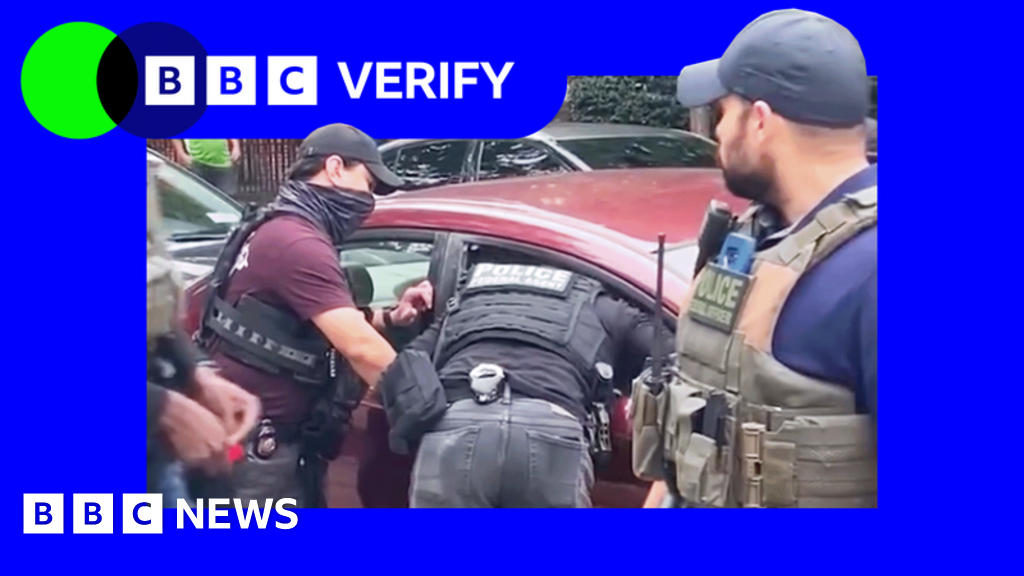Patricia Joseph's search for her missing mother, Hyacinth Gage, has spanned six long years, triggering a deep sense of public despair as more people vanish from the shores of Antigua. Hyacinth, 74, was last seen on her way to a routine hospital appointment in May 2019. Since then, her disappearance remains one of the many unsettling cases on a seemingly dangerous island, where at least nine locals have gone missing within just the last two years.
The heart-wrenching anguish Patricia feels is mirrored across Antigua, where reports suggest an alarming rise in disappearances, leading some to label the situation an "epidemic." The shared uncertainty among families has created an urgent call for action as the local population of 100,000 grapples with over 50 reported missing cases over the past decade.
Patricia's search for Hyacinth led her to uncover various leads, including a person who had taken Hyacinth home after her check-up. While her inquiries were initially met with frustration from police, a growing number of families—like that of nine-year-old Chantel Crump, who was recently found dead—are rallying for accountability.
Public pressure is intensifying as community members express skepticism towards police efficiency. Recent discussions point towards a possible link with organized crime and even organ trafficking, although authorities are currently investigating their credibility. Acting Police Commissioner Everton Jeffers acknowledged the need for improvement while assuring families that all avenues are being explored.
Families horror stories underscore the emotional turmoil attached to these cases; for many, like Alline Henry, the incomprehensibility of the situation breeds a potent fear and anger. Alline believes her missing friend, Orden David, became a target as a result of his activism in LGBTQ+ rights. This reflection somewhat encapsulates the anxieties rippling through Antigua's social fabric, where names of vanished persons are increasing, exacerbating fears over safety.
Crime statistics across neighboring islands starkly contrast Antigua’s predicament—reported missing locals are often documented quickly and resolutely resettled. As they confront the daunting brush of negligence, residents highlight the need for both resources and advocacy; Patricia is poised to lead an action group seeking international assistance in responding to these disquieting disappearances.
The government is tentatively responding with a proposed task force especially aimed at missing individuals. However, questions linger about whether these measures will suffice to quell public outcry and alleviate the suffering etched into the lives of families on Antigua. Desperation and loss resonate heavily as residents echo a singular call—where are the answers to these haunting disappearances?
The heart-wrenching anguish Patricia feels is mirrored across Antigua, where reports suggest an alarming rise in disappearances, leading some to label the situation an "epidemic." The shared uncertainty among families has created an urgent call for action as the local population of 100,000 grapples with over 50 reported missing cases over the past decade.
Patricia's search for Hyacinth led her to uncover various leads, including a person who had taken Hyacinth home after her check-up. While her inquiries were initially met with frustration from police, a growing number of families—like that of nine-year-old Chantel Crump, who was recently found dead—are rallying for accountability.
Public pressure is intensifying as community members express skepticism towards police efficiency. Recent discussions point towards a possible link with organized crime and even organ trafficking, although authorities are currently investigating their credibility. Acting Police Commissioner Everton Jeffers acknowledged the need for improvement while assuring families that all avenues are being explored.
Families horror stories underscore the emotional turmoil attached to these cases; for many, like Alline Henry, the incomprehensibility of the situation breeds a potent fear and anger. Alline believes her missing friend, Orden David, became a target as a result of his activism in LGBTQ+ rights. This reflection somewhat encapsulates the anxieties rippling through Antigua's social fabric, where names of vanished persons are increasing, exacerbating fears over safety.
Crime statistics across neighboring islands starkly contrast Antigua’s predicament—reported missing locals are often documented quickly and resolutely resettled. As they confront the daunting brush of negligence, residents highlight the need for both resources and advocacy; Patricia is poised to lead an action group seeking international assistance in responding to these disquieting disappearances.
The government is tentatively responding with a proposed task force especially aimed at missing individuals. However, questions linger about whether these measures will suffice to quell public outcry and alleviate the suffering etched into the lives of families on Antigua. Desperation and loss resonate heavily as residents echo a singular call—where are the answers to these haunting disappearances?























